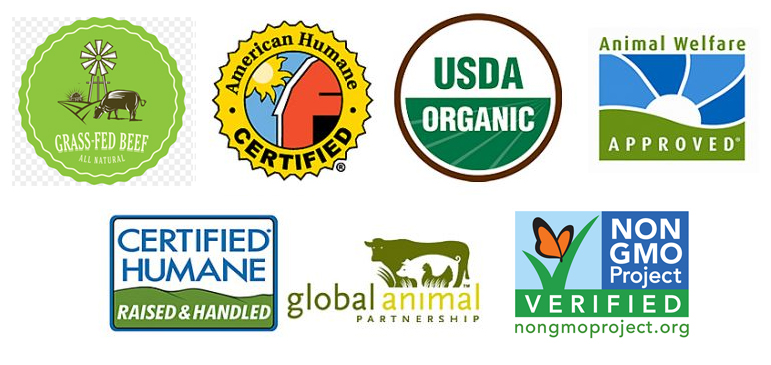“Pastured” is a vague term and does not necessarily mean an animal spends its life on new grass foraging, grazing and/or preying on a natural diet (e.g. chicken eating slugs). Consumers should be aware of this ploy and play on buzzwords and ask the right questions before purchasing.
“Grass-fed” is another term that can be misleading. Unless certified grass-fed, ruminants may have been grass-finished or allowed to graze for a short period of time; however, these brief exposures do not constitute being grass-fed as their sole and natural diet. If warranted, consumers should be compelled to ask for clarification.
Organic is only organic if “certified” organic. The USDA is one accredited certifier, and there are many more (e.g. Oregon Tilth). However, due to corporate lobby and special interests, USDA has watered down the definition and qualifications for the organic credential. Consumers should be compelled to inquire more on the origin of food in terms of geography, specific farm and its practices, the markets they serve, and more. Answers to these questions can speak to freshness, nutrient density, carbon footprints, and more.

Food is not guaranteed to be “GMO-free” unless its states GMO-free on the package OR on the bag of grain being used for animal feed. GMOs are ubiquitous in our food system, so buyer beware.
“Bio-dynamic” is a holistic and highly ethical set of methodologies for growing food and in many cases surpasses the USDA organic certification in terms of how natural, environmentally sustainable, and harmonious-with-nature product is grown.
“Real Organic” is another holistic and highly ethical set of methodologies for growing food and in many cases surpasses the USDA organic certification in terms of how natural and harmonious with nature product is grown. This VT-born concept is under development (https://www.realorganicproject.org/).
“In-ground, soil-based and grown” foods are to be distinguished from all other systems (e.g. hydroponics, aquaponics, or some other hybrid system). This differentiation is particularly important with regard to the micro-biome of the plant, the animal, and the eater of those foods and relates directly to our mantra, “you are what you eat and what your food eats.” The natural transfer of microbiota is disrupted when food is grown in unnatural, man-made, and/or sterile environments. Furthermore, there are immunological reactions by both plant and animals that are raised in biologically diverse, natural environments that have been found to contribute to the overall healthiness of produce and proteins in terms of vitamins, minerals, proteins,and compounds found in finished products.
